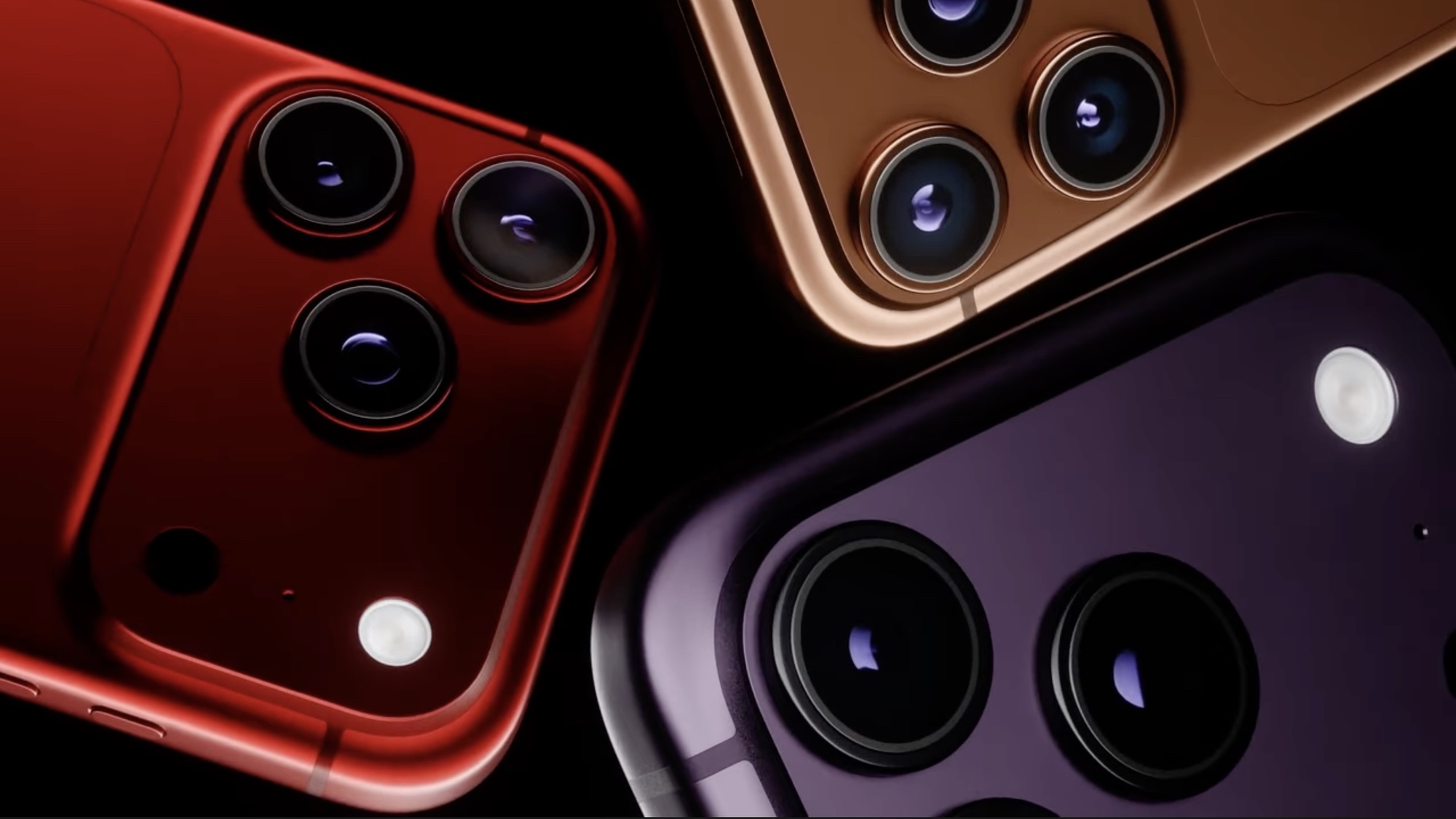Garmin Vivoactive 4 vs Garmin Vivoactive 5: Which Garmin watch should you buy?
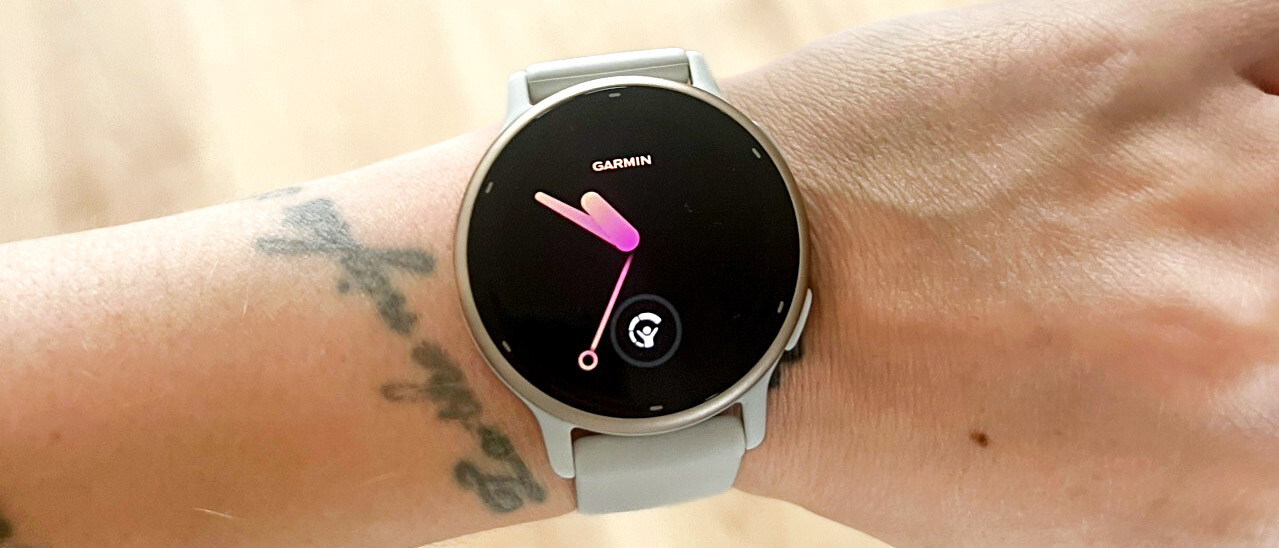
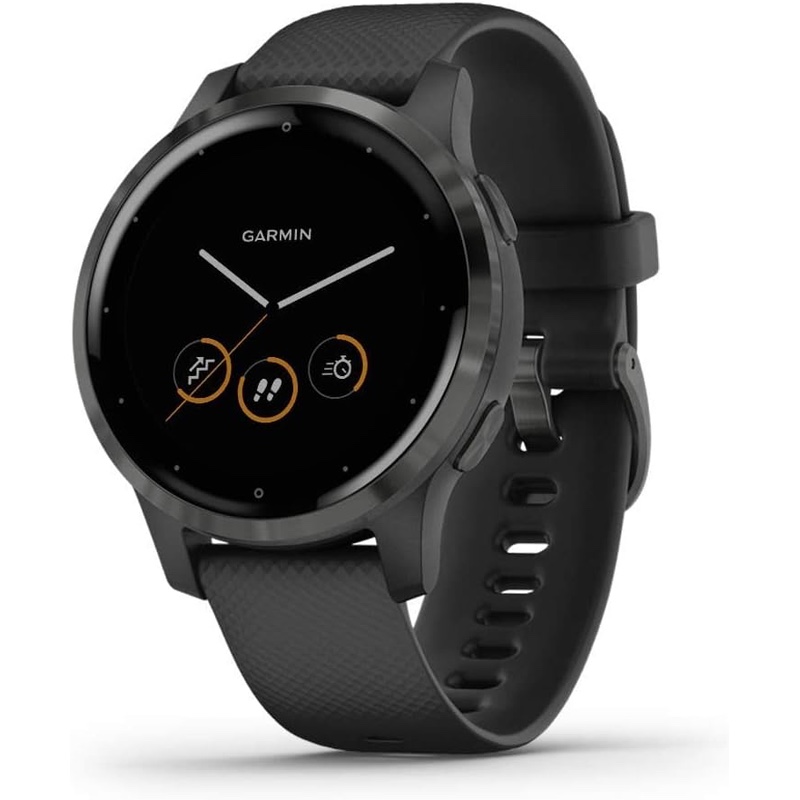
The Vivoactive 4 is Garmin’s fitness-focused smartwatch with more bells and whistles for tracking health stats and workouts than its predecessor, plus offline Spotify playback. It comes in two sizes — the 40mm Garmin Vivoactive 4S and 45mm.
Pros
- Comes in two sizes
- Built-in music storage with Spotify support
- Two-button navigation
Cons
- Occasional syncing issues
- Convoluted app installation process
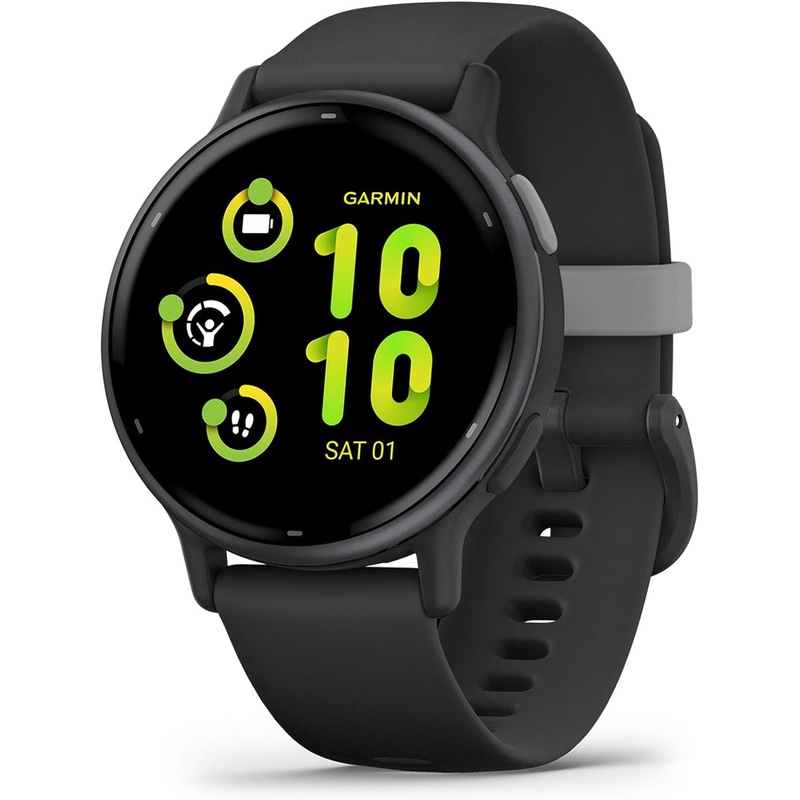
More affordable than the Vivoactive 4, the Vivoactive 5 has even more advanced features, 30-plus sports apps and upgraded sleep and stress coaching, along with an upgraded AMOLED display and Elevate V4 heart rate sensor. It comes in one size — 42mm.
Pros
- Advanced health stats like sleep and stress coaching
- 30-plus sports apps
- Upgraded AMOLED display
Cons
- Inconsistent sleep data
- Buttons are stiff
- No barometric altimeter
Garmin recently launched the latest Garmin Vivoactive 5 smartwatch to sit alongside its predecessor, the Garmin Vivoactive 4. The Vivoactive 5 has more than a few notable upgrades, including a bright AMOLED display to replace the older MIP display on the Vivoactive 4 and a reduced 42mm case, but both Garmin watches are crammed with brilliant training features to help you exercise smarter.
So what are the main Garmin Vivoactive 4 vs Garmin Vivoactive 5 differences, and which one should you buy?
We’ve put the Garmin Vivoactive 4 and Garmin Vivoactive 5 head to head to compare the models. We looked at health and fitness tracking features, battery life, display and size to help you decide which Garmin watch is the right fit for you. You can find our longhand reviews by reading the Garmin Vivoactive 4 review as well as our Garmin Vivoactive 5 review.
You can also find the Vivoactive 3 review if you’re interested in dialing back by a few models to save on price; we recommend the Garmin Forerunner series if you prefer a superior sports-focused model.
Garmin Vivoactive 4 vs Garmin Vivoactive 5: Price and availability
The Garmin Vivoactive 4 was announced in 2019, priced at $349. It comes in two models — the 4, which has a 45mm display, and the 4S, which has a 40mm display. Since its release, we’ve seen the model available for $300 in some outlets.
The Garmin Vivoactive 5 was announced in September 2023, costing $299/£259, considerably less than the widely popular $449/£459 Garmin Venu 3 (which it’s often compared with).
Garmin’s newest smartwatch also has one size, a 42mm case and a 1.2-inch AMOLED screen that isn’t far off the look of the Apple Watch Series 9. Garmin's watch comes with a silicone strap and aluminum bezel rather than the stainless steel design of its predecessor, along with a polymer case. Like all the best Garmin watches, you have different colorways to choose from, which all cost the same.
Get instant access to breaking news, the hottest reviews, great deals and helpful tips.
Winner: Garmin Vivoactive 5. The Vivoactive 5 is more affordable than many models, including the 4. But if you’re still looking to save, you could find the Vivoactive 4 discounted, especially during Black Friday deals.
Garmin Vivoactive 4 vs Garmin Vivoactive 5: Specs at a glance
Here’s a snapshot of the two watches side by side:
| Header Cell - Column 0 | Vivoactive 4 | Vivoactive 4S | Vivoactive 5 |
|---|---|---|---|
| Screen size | 1.3 inches | 1.1 inches | 1.2 inches |
| Resolution | 260 x 260 pixels | 218 x 218 pixels | 390 x 390 pixels |
| Case size | 45.1 x 45.1 x 12.8 mm | 40.0 x 40.0 x 12.7 mm | 42.2 x 42.2 x 11.1 mm |
| Weight | 50.5g | 40g | 26g |
| GPS battery life | GPS mode with music: Up to 6 hours | GPS mode with music: Up to 5 hours GPS mode without music: Up to 15 hours | GPS-Only GNSS mode: Up to 21 hours All-Systems GNSS mode: Up to 17 hours |
| Smartwatch battery life | 8 days | 7 days | 11 days (5 days display always-on) |
| Touchscreen | Yes | Yes | Yes |
| Memory | 7 timed activities, 14 days of activity tracking data | 200 hours activity data | 4GB |
| Garmin Pay | Yes | Yes | Yes |
Garmin Vivoactive 4 vs Garmin Vivoactive 5: Design and display
Some key differences between the Vivoactive 4 and Vivoactive 5 are design and display. The Vivoactive 4 sports the older MIP display compared to the bright AMOLED display upgrade on the latest model.
Both models have a round screen and two buttons on the right side, allowing you to call up activities and apps on the watches and navigate the watch.
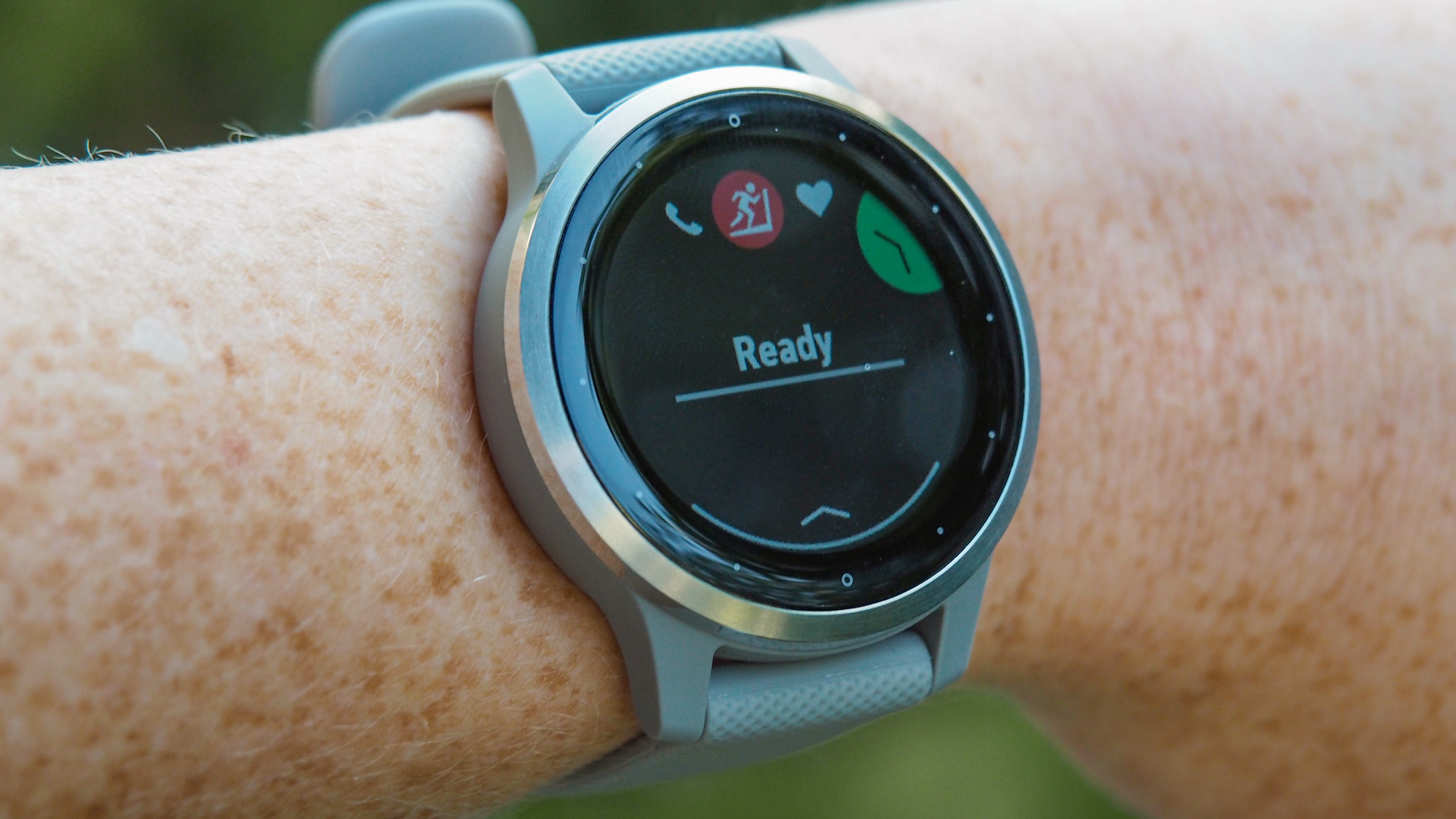
The upgraded AMOLED screen on the Vivoactive 5 is bright and clear like the Garmin Venu 3, even in sunlight, and boasts superior resolution — 390 x 390 pixels compared to 260 x 260 on the 4 and 218 x 218 on the Vivoactive 4S. Models like the Forerunner 265 (416 x 416 pixels) and Forerunner 965 (454 x 454 pixels) are brighter.

The Vivoactive 5 sits somewhere between the 4 and 4S with its 42mm screen size, compared to the 4S (40mm) and 4 (45mm). We found the screen size on the 5 suitable for smaller wrists, but this comes down to personal preference. Both watches have responsive touchscreens, and the buttons are handy for navigation during wet weather.
Notably, the Vivoactive 5 is super lightweight — 26g compared with the 50.5g Garmin Vivoactive 4 model.
Winner: Garmin Vivoactive 5. Both Garmin devices have two useful buttons and a responsive touchscreen, but with the upgraded AMOLED screen, mid-size display and lightweight design, the Vivoactive 5 reigns superior.
Garmin Vivoactive 4 vs Garmin Vivoactive 5: Battery life
Unlike the Apple Watch Series 9 or previous Apple Watch models, the Garmin watches are renowned for superb battery life, lasting several days between charges. But some models last longer than others.
The Garmin Vivoactive 4 lasts up to 8 days or 6 hours on GPS mode with music. The 4S lasts slightly less — 7 days or up to 5 hours on GPS mode with music and 15 hours GPS-mode without music. The Vivoactive 5 estimates up to 11 days, or 5 days with display always-on and between 8 and 21 hours for various GPS/GNSS modes.
Winner: Garmin Vivoactive 5. Again, the Vivoactive 5 takes the win by a decent amount. However, if you keep your watch on display always-on, the watch battery life decreases significantly. Your battery life will also depend on how you use the model, including GPS modes.
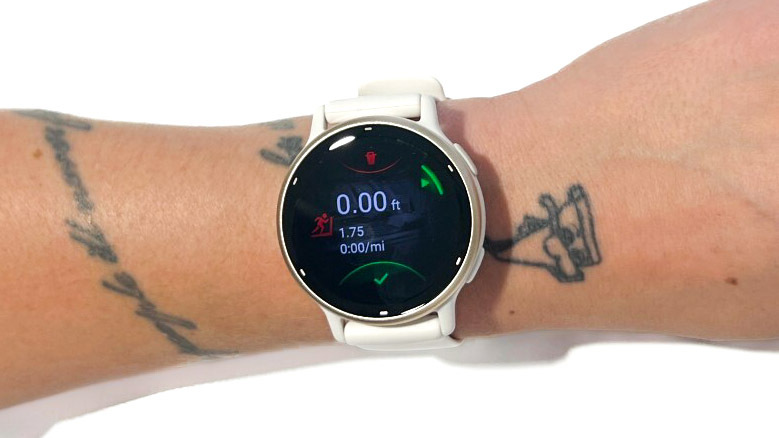
Garmin Vivoactive 4 vs Garmin Vivoactive 5: Health and fitness features
Both Garmin watches have multi-sport tracking capabilities; they can also measure heart and respiration rate, pulse oxygen blood saturation, Body Battery, Fitness Age, stress and relaxation, sleep, hydration and women’s health. These devices also offer Garmin Coach access to running plans ranging from 5K to half-marathon training, but the Vivoactive 5 takes things up a notch.
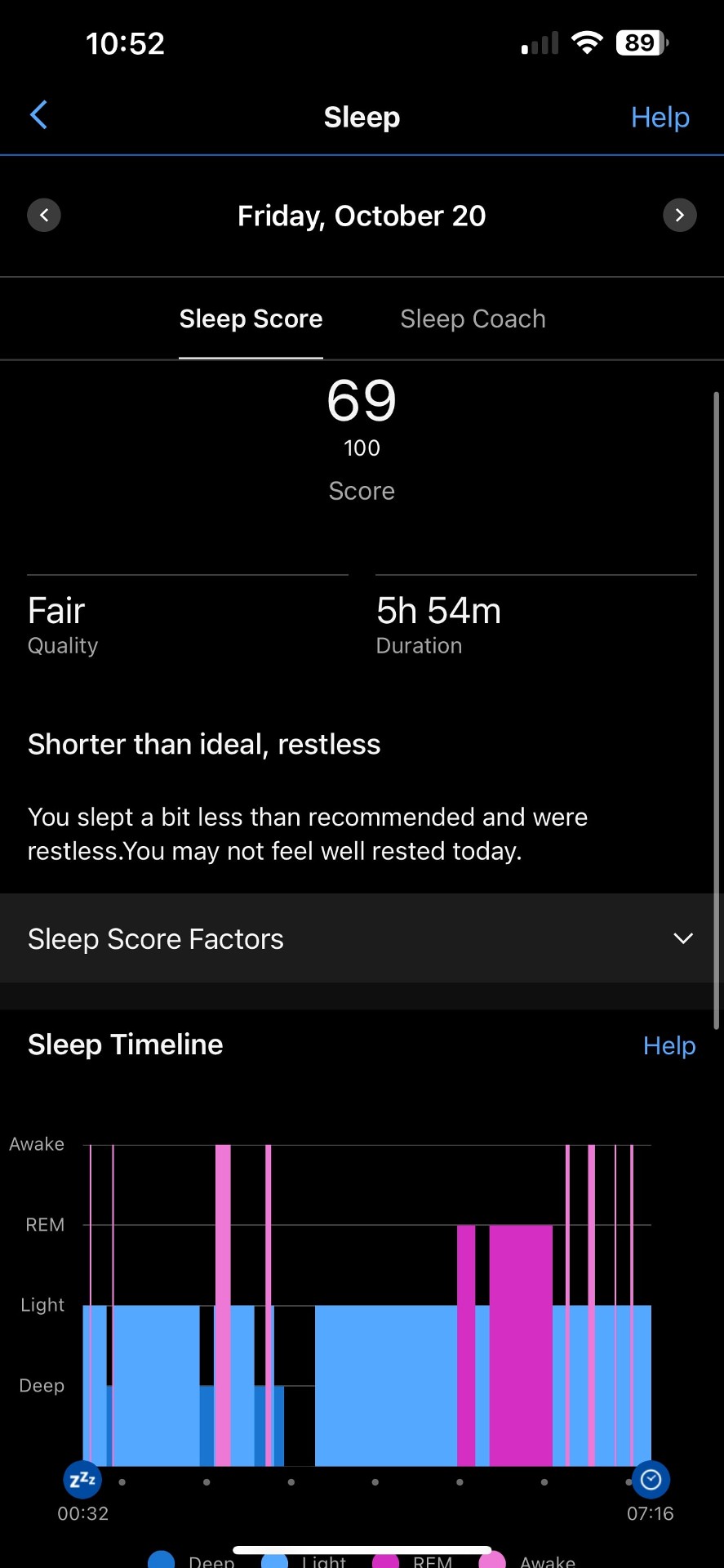
The Vivoactive 5 offers advanced features like Morning Report, which tells you how rested your body is on metrics like sleep and HRV status, viewable at a glance. The latest watch offers nap detection and the Sleep Coach feature to give you feedback on your sleep stages, total sleep and quality. Expect more accurate analysis with the Elevate V4 sensor — the green light measures heart rate, and the red light records blood oxygen. The sensor can calculate breathing rate, HRV and stress. It's not the latest sensor available though; the V5 features in models like the Garmin Venu 3.
Compared with the Vivoactive 4, which offers 20 sports modes, the Vivoactive 5 has more than 30, ranging from golf to eBike activity and pre-loaded, customized strength training programs. You can even curate workout plans from a library of 1,600 exercises and send them to the watch, which uses muscle mapping to help you plan workouts based on your goals.
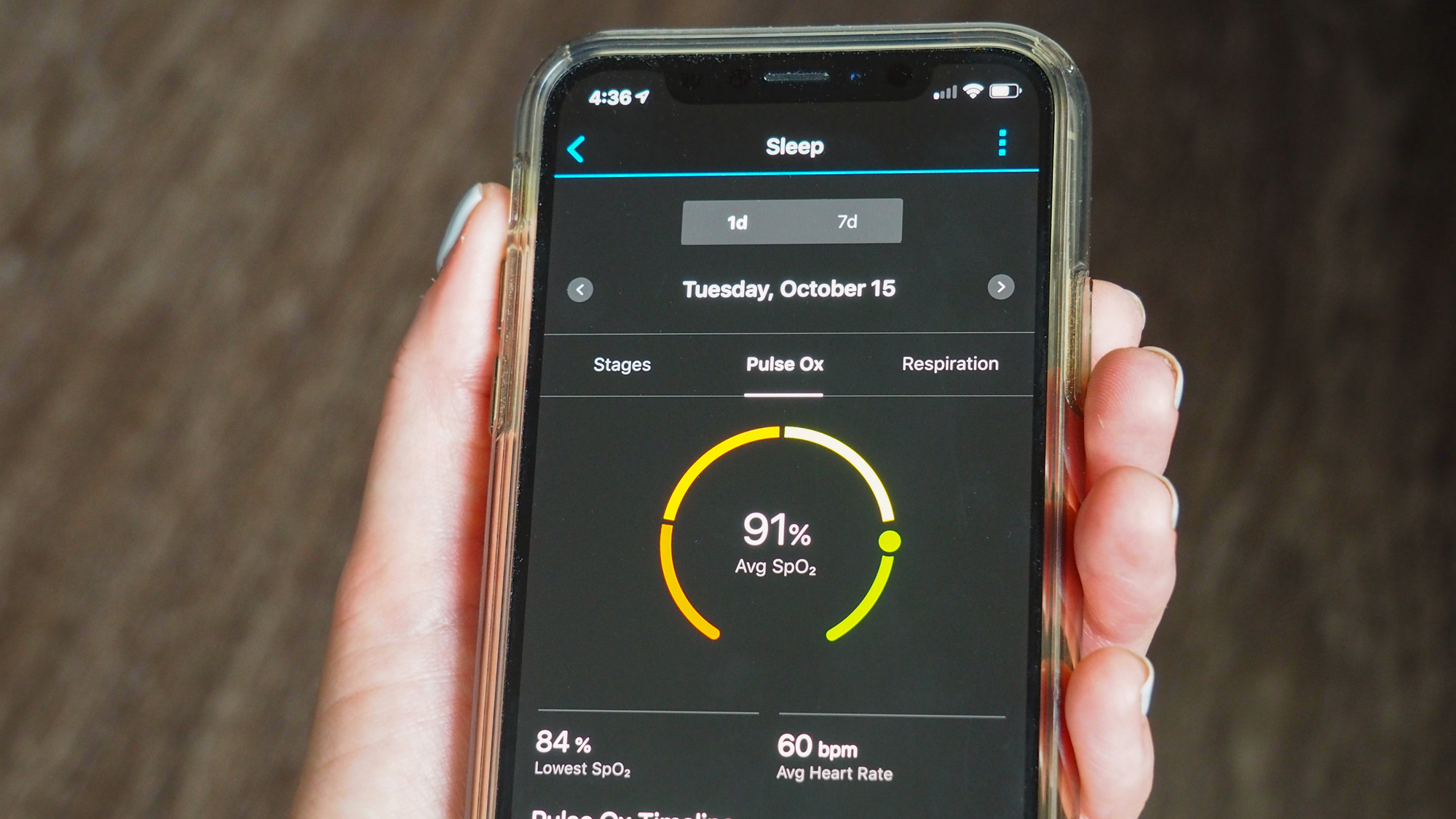
Where the Vivoactive 5 really shines is the wheelchair mode, which tracks daily pushes and weight shift alerts along with workouts and sports apps. On top of that, Garmin is keeping up with the fitness trends, offering sports modes like pickleball, Padel and water sports.
So, what’s missing? Strangely, the on-screen guided exercise animations on the 4 are no longer available on the 5 for activities like yoga and Pilates, and the barometric altimeter and gyroscope are also missing.
Winner: Vivoactive 5. From a health and fitness perspective, the Vivoactive 5 offers even more sport mode and tracking capabilities and a refresh on features like sleep and stress management, along with an upgraded heart rate sensor and Morning Reports.
Garmin Vivoactive 4 vs Garmin Vivoactive 5: Smartwatch features
It’s a close call. Both watches have Garmin Pay and access to downloadable watch faces, widgets and apps via Connect IQ. You can also access Spotify (with a paid subscription), Amazon Music and Deezer, although the process isn’t intuitive on either model.
Android owners can now view photos and reply to texts from the watch screen on the Vivoactive 5 — a feature that isn’t available on the 4, and no such luck for iPhone users. Both devices also have a 5ATM water-resistance rating for swimmers or paddleboarders.
Winner: Vivoactive 5. But only just. Both watches are designed to be worn day and night, but the upgraded text and photo features just clinch it for the 5.
Garmin Vivoactive 4 vs Garmin Vivoactive 5: Verdict
Should you buy the Garmin Vivoactive 4 or Vivoactive 5? In our view, it’s a no-brainer. The Vivoactive 5 is more affordable than its predecessor and has more advanced features and tracking capabilities, so what’s not to love?
Garmin's latest release has a superior heart rate monitor and upgraded sleep and stress tracking to provide insights on readiness levels and recovery, with more sports modes and better battery life.
However, it also depends on what training features you’re looking for in a watch. The Forerunner series is considered a more elite sports-focused watch — our fitness editor loves the Garmin Forerunner 265, for example — and the Garmin Fenix 7 is a solid pick if you have money to spend on a more premium Garmin watch.
If you’re looking for a round-up of our favorite watches and the pros and cons of investing, we’ve put together our best running watches list to help you make an informed decision.
More from Tom's Guide
- Apple Watch 7 and Garmin Vivoactive 5: Which counted steps more accurately?
- Best Garmin deals right now
- Apple Watch vs. Garmin: Which should you buy?

Sam Hopes is a level 3 qualified trainer, a level 2 Reiki practitioner and fitness editor at Tom's Guide. She is also currently undertaking her Yoga For Athletes training course.
Sam has written for various fitness brands and websites over the years and has experience across brands at Future, such as Live Science, Fit&Well, Coach, and T3.
Having coached at fitness studios like F45 and Virgin Active and personal trained, Sam now primarily teaches outdoor bootcamps, bodyweight, calisthenics and kettlebells.
She also coaches mobility and flexibility classes several times a week and believes that true strength comes from a holistic approach to training your body.
Sam has completed two mixed doubles Hyrox competitions in London and the Netherlands and finished her first doubles attempt in 1:11.
 Club Benefits
Club Benefits





